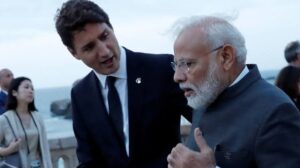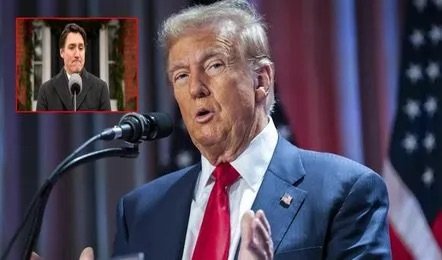Will relations between India and Canada improve after Trudeau’s resignation?

Justin Trudeau’s announcement to step down as Prime Minister of Canada has been welcomed in Canada and India as well. In Canada, apart from the general public, he had lost popularity among the ruling Liberal Party, while India was having a tough time with Trudeau.
The 53-year-old Trudeau announced his resignation on Monday. Before making the announcement, he met with Canada’s Governor General Mary Simon and requested that the parliamentary session, which was scheduled to begin on January 27, be postponed until March 24 so that the Liberal Party can complete all activities related to choosing its new leader in accordance with national laws and political traditions.
This request has been accepted, which means that Mr. Trudeau will remain the acting Prime Minister for now, but will not be able to take important and future-oriented decisions related to national issues. He has been the Prime Minister since October 2015. During his tenure in this position, while Canada’s economy declined, its diplomatic relations with the United States, China, and India also deteriorated rapidly.
These disruptions had an impact not only on Canadian society but also on the national economy. Similarly, his policy of keeping the doors open for immigrants opened the way for the influx of money from other countries for the Canadian economy, but also led to a housing shortage crisis and a significant increase in the inflation of consumer goods for the middle class.
These crises, in addition to his personal popularity, also steadily eroded the popularity of the Liberal Party. The Liberal Party, which won an absolute majority in the 2015 parliamentary elections, could not win a majority in 2020. It had to form a government with the support of the New Democratic Party (NDP) led by Jagmeet Singh Dhaliwal, but the political concessions that had to be made to that party in return also caused unrest within the ranks of the Liberal Party.
Sensing the trend of the wind against Trudeau, the NDP last month openly expressed its distrust of Trudeau for the first time and announced that it would not support him. This raised the possibility that the Trudeau government could fall at any time.
This possibility also undermined the credibility of the Trudeau government and made it difficult for Trudeau to continue as Prime Minister. As a result, several ministers, including Deputy Prime Minister Chrystia Freeland, resigned from their posts, and the anti-Trudeau faction within the Liberal Party gained considerable strength. This situation made it impossible for him to remain as Prime Minister.
The country’s parliamentary elections are due in September-October this year. The Liberal Party feels that contesting the elections under the leadership of a new leader can improve the party’s electoral performance to some extent. This thinking, along with the threat of a no-confidence motion against the government by three opposition parties, increased the pressure on Trudeau to resign.
As far as India is concerned, its relations with Canada began to deteriorate during Trudeau’s visit to India in 2018. Before that official visit, the patronage of Khalistanis by the Canadian government had become a matter of concern for India. During that visit, the presence of some Khalistan supporters in the Canadian government delegation at a reception organized by the Canadian High Commission in Mumbai had created sharp diplomatic tension. Therefore, this visit did not prove to be a happy one for Trudeau. It is worth mentioning here that Justin Trudeau’s father Pierre Trudeau was also the Canadian Prime Minister.
During his tenure in the 1980s, a large number of Khalistan supporters were granted political asylum in Canada. But Justin Trudeau’s resignation may not bring immediate improvement in bilateral relations, but it can certainly help in stopping the deterioration. In this regard, it is a good progress.
Michael Kugelman, director of the South Asia Institute at the Wilson Center think tank in Washington DC, wrote on X, “Trudeau’s resignation could provide an opportunity to stabilize the deteriorating India-Canada relations.” He said, “When the new administration comes in, it will make a new start and there is a new hope from the new prime minister and the new administration. But it is certain that the Liberal Party also has its challenges.”
Former Indian Foreign Secretary Kanwal Sibal wrote on X, “Trudeau has damaged India-Canada relations with his irresponsible policies. But the problem of Sikh extremism in Canada will not go away, because these elements have gained a deep grip in Canadian politics.”
In fact, tensions between India and Canada have increased continuously after the anti-India protests by Khalistan supporters in Canada and the killing of Khalistan supporter Hardeep Singh Nijjar. Canada alleges that India has a hand in the killing of Khalistan supporter Hardeep Singh Nijjar, while India has been denying this.








